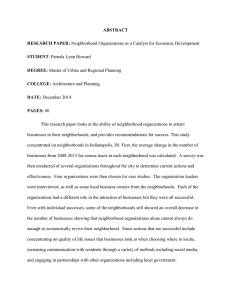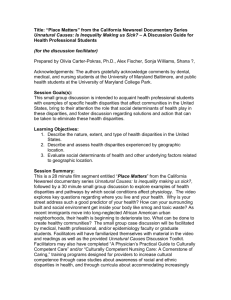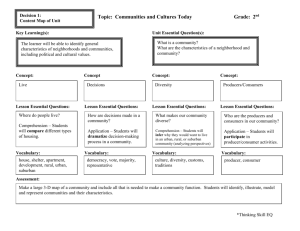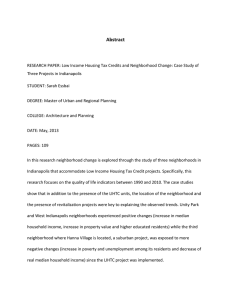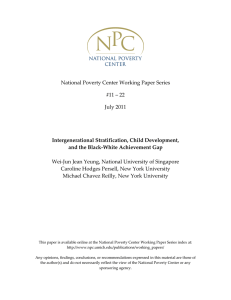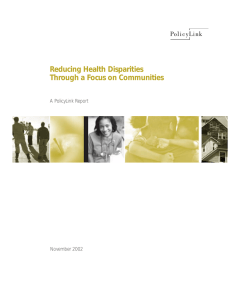Neighborhood Interventions in Alcohol-related Homicide: A Systems Approach
advertisement
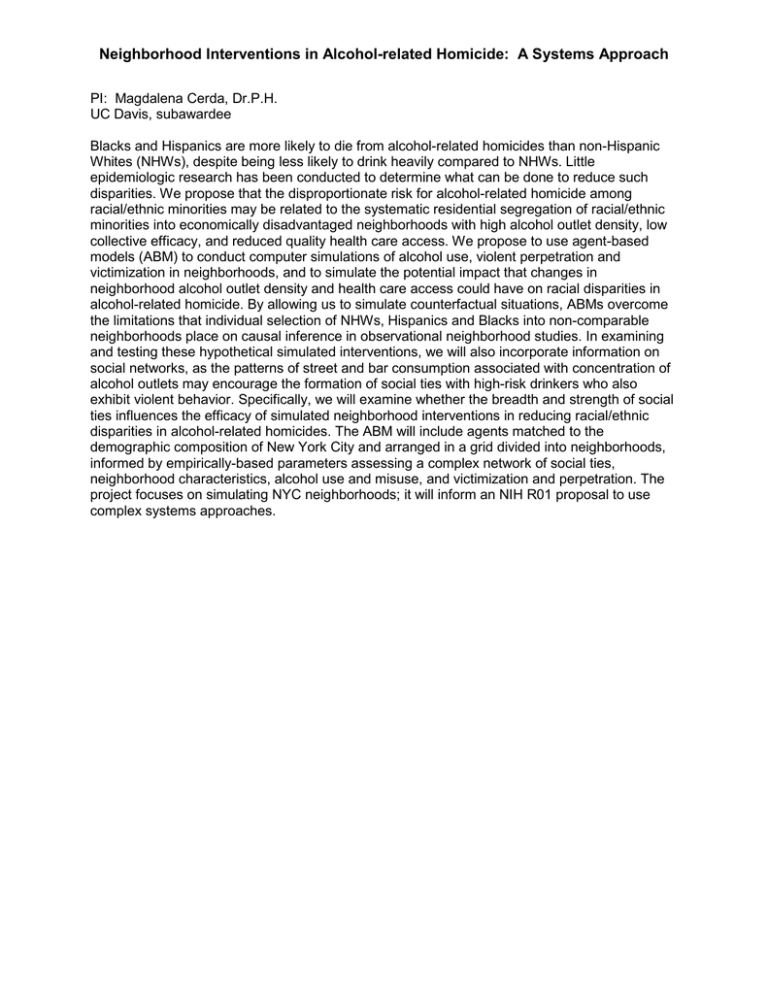
Neighborhood Interventions in Alcohol-related Homicide: A Systems Approach PI: Magdalena Cerda, Dr.P.H. UC Davis, subawardee Blacks and Hispanics are more likely to die from alcohol-related homicides than non-Hispanic Whites (NHWs), despite being less likely to drink heavily compared to NHWs. Little epidemiologic research has been conducted to determine what can be done to reduce such disparities. We propose that the disproportionate risk for alcohol-related homicide among racial/ethnic minorities may be related to the systematic residential segregation of racial/ethnic minorities into economically disadvantaged neighborhoods with high alcohol outlet density, low collective efficacy, and reduced quality health care access. We propose to use agent-based models (ABM) to conduct computer simulations of alcohol use, violent perpetration and victimization in neighborhoods, and to simulate the potential impact that changes in neighborhood alcohol outlet density and health care access could have on racial disparities in alcohol-related homicide. By allowing us to simulate counterfactual situations, ABMs overcome the limitations that individual selection of NHWs, Hispanics and Blacks into non-comparable neighborhoods place on causal inference in observational neighborhood studies. In examining and testing these hypothetical simulated interventions, we will also incorporate information on social networks, as the patterns of street and bar consumption associated with concentration of alcohol outlets may encourage the formation of social ties with high-risk drinkers who also exhibit violent behavior. Specifically, we will examine whether the breadth and strength of social ties influences the efficacy of simulated neighborhood interventions in reducing racial/ethnic disparities in alcohol-related homicides. The ABM will include agents matched to the demographic composition of New York City and arranged in a grid divided into neighborhoods, informed by empirically-based parameters assessing a complex network of social ties, neighborhood characteristics, alcohol use and misuse, and victimization and perpetration. The project focuses on simulating NYC neighborhoods; it will inform an NIH R01 proposal to use complex systems approaches.
